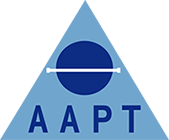News
The Covid pandemic has changed the world in which we live
Martin Goddard, AAPT Council member, offers insight into the perception of APTs and the need for registration
.png)
The COVID-19 pandemic has changed the world in which we live.
Our perceptions of healthcare and its availability has changed over the months that COVID-19 has taken a grip, and the provision of healthcare that we once took for granted now is something that is cherished like never before.
People have taken to the streets to bang pots and pans, supermarkets have made special provisions for exclusive access and those working within care settings have taken extra pride in their roles, changing their social media accounts to reflect the field in which they work.
Whilst for many years the focus of healthcare has been on Doctors and Nurses, throughout the pandemic, many previously unseen professions are coming to the fore, and news organisations such as the BBC have presented the many different staff groups who work in hospitals and other healthcare organisations .
Last week, a special report featured a brief interview with an Anatomical Pathology Technologist working in the Royal London Hospital, which generated much emotion and discussion from both the public and other medical staff.
Why did this happen? As the APT broke down in tears, describing how she felt about the “conveyer belt” situation that this pandemic has produced, the raw emotion of what these professionals deal with on a daily basis was highlighted.
Anatomical Pathology Technologists pride themselves on delivering a high standard of personalised and individual care to all of their patients, and whilst the deceased may not be viewed as a patient in a traditional sense, that person is a patient for thosewho work in the mortuary.
Mortuaries are often hidden away from the eyes of the general public in hospitals; for instance, it is still not common to see them signposted within a hospital setting, and nursing staff still often refer to the department as ‘Rose Cottage’ as this is felt to be a softer description, less upsetting. The taboos around death and dying still exist in the 21st-century and the mortuary and its staff remain a hidden part of the patient journey.
It is assumed that dealing with death and dying is something they are used to dealing with and so are emotionally hardened, but this is not the case.
Throughout the pandemic, mortuary staff have been unable to provide the same type of care which they did before the pandemic started. Many normal practices have had to be foregone to reduce the risk of infection and to ensure that patients are taken into the care of a Funeral Director promptly. Undoubtedly, the effects of the pandemic have been the hardest thing APTs throughout the country have had to deal with in living memory.
Despite being hidden, Anatomical Pathology Technologists are not afraid to speak out on behalf of the service they manage and the patients they care for. Although an unregistered profession, this group continues to strive for regulation and consistent high-quality care.
The Association of Anatomical Pathology Technology cares for the needs of its members and is a voice for the profession; working tirelessly to ensure the development of its members and engagement with the Government through multiple agencies.
The AAPT recognises that statutory regulation of this profession is the single most important goal to achieve.
